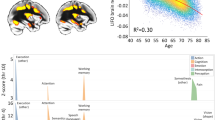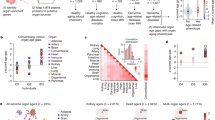Abstract
Objective:
Higher late life body mass index (BMI) is unrelated to or even predicts lower risk of dementia in late life, a phenomenon that may be explained by reverse causation due to weight loss during preclinical phases of dementia. We aim to investigate the association of baseline BMI and changes in BMI with dementia in a large prospective cohort, and to examine whether weight loss predicts cognitive function.
Methods:
Using a national cohort of adults average age 58 years at baseline in 1994 (n=7029), we investigated the associations between baseline BMI in 1994 and memory scores from 2000 to 2010. We also examined the association of BMI change from 1994 to 1998 with memory scores from 2000 to 2010. Last, to investigate reverse causation, we examined whether memory scores in 1996 predicted BMI trajectories from 2000 to 2010.
Results:
Baseline overweight predicted better memory scores 6 to 16 years later (β=0.012, 95% confidence interval (CI)=0.001; 0.023). Decline in BMI predicted lower memory scores over the subsequent 12 years (β=−0.026, 95% CI= −0.041; −0.011). Lower memory scores at mean age 60 years in 1996 predicted faster annual rate of BMI decline during follow-up (β=−0.158 kg m−2 per year, 95% CI= −0.223; −0.094).
Conclusion:
Consistent with reverse causation, greater decline in BMI over the first 4 years of the study was associated with lower memory scores over the next decade and lower memory scores was associated with a decline in BMI. These findings suggest that preclinical dementia predicts weight loss for people as early as their late 50s.
This is a preview of subscription content, access via your institution
Access options
Subscribe to this journal
Receive 12 print issues and online access
$259.00 per year
only $21.58 per issue
Buy this article
- Purchase on Springer Link
- Instant access to full article PDF
Prices may be subject to local taxes which are calculated during checkout


Similar content being viewed by others
References
Anstey KJ, Cherbuin N, Budge M, Young J . Body mass index in midlife and late-life as a risk factor for dementia: a meta-analysis of prospective studies. Obes Rev 2011; 12: e426–e437.
Luchsinger JA, Gustafson DR . Adiposity and Alzheimer's disease. Curr Opin Clin Nutr Metab Care 2009; 12: 15–21.
Whitmer RA, Gunderson EP, Barrett-Connor E, Quesenberry CP Jr., Yaffe K . Obesity in middle age and future risk of dementia: a 27 year longitudinal population based study. BMJ 2005; 330: 1360.
Whitmer RA, Gunderson EP, Quesenberry CP Jr., Zhou J, Yaffe K . Body mass index in midlife and risk of Alzheimer disease and vascular dementia. Curr Alzheimer Res 2007; 4: 103–109.
Loef M, Walach H . Midlife obesity and dementia: meta-analysis and adjusted forecast of dementia prevalence in the United States and China. Obesity (Silver Spring) 2013; 21: E51–E55.
Nourhashemi F, Deschamps V, Larrieu S, Letenneur L, Dartigues JF, Barberger-Gateau P . Body mass index and incidence of dementia: the PAQUID study. Neurology 2003; 60: 117–119.
Stewart R, Masaki K, Xue QL, Peila R, Petrovitch H, White LR et al. A 32-year prospective study of change in body weight and incident dementia: the Honolulu-Asia Aging Study. Arch Neurol 2005; 62: 55–60.
Sperling R, Mormino E, Johnson K . The evolution of preclinical Alzheimer's disease: implications for prevention trials. Neuron 2014; 84: 608–622.
Dahl AK, Hassing LB, Fransson EI, Gatz M, Reynolds CA, Pedersen NL . Body mass index across midlife and cognitive change in late life. Int J Obes (Lond) 2013; 37: 296–302.
Dahl A, Hassing LB, Fransson E, Berg S, Gatz M, Reynolds CA et al. Being overweight in midlife is associated with lower cognitive ability and steeper cognitive decline in late life. J Gerontol A Biol Sci Med Sci 2010; 65: 57–62.
Xu WL, Atti AR, Gatz M, Pedersen NL, Johansson B, Fratiglioni L . Midlife overweight and obesity increase late-life dementia risk: a population-based twin study. Neurology 2011; 76: 1568–1574.
Rosengren A, Skoog I, Gustafson D, Wilhelmsen L . Body mass index, other cardiovascular risk factors, and hospitalization for dementia. Arch Intern Med 2005; 165: 321–326.
Hassing LB, Dahl AK, Thorvaldsson V, Berg S, Gatz M, Pedersen NL et al. Overweight in midlife and risk of dementia: a 40-year follow-up study. Int J Obes 2009; 33: 893–898.
Dahl AK, Lopponen M, Isoaho R, Berg S, Kivela SL . Overweight and obesity in old age are not associated with greater dementia risk. J Am Geriatr Soc 2008; 56: 2261–2266.
Hughes TF, Borenstein AR, Schofield E, Wu Y, Larson EB . Association between late-life body mass index and dementia: The Kame Project. Neurology 2009; 72: 1741–1746.
Power BD, Alfonso H, Flicker L, Hankey GJ, Yeap BB, Almeida OP . Body adiposity in later life and the incidence of dementia: the health in men study. PLoS One 2011; 6: e17902.
Power BD, Alfonso H, Flicker L, Hankey GJ, Yeap BB, Almeida OP . Changes in body mass in later life and incident dementia. Int Psychogeriatr 2013; 25: 467–478.
Buchman AS, Wilson RS, Bienias JL, Shah RC, Evans DA, Bennett DA . Change in body mass index and risk of incident Alzheimer disease. Neurology 2005; 65: 892.
Driscoll I, Espeland MA, Wassertheil-Smoller S, Gaussoin SA, Ding J, Granek IA et al. Weight change and cognitive function: findings from the Women's Health Initiative Study of Cognitive Aging. Obesity 2011; 19: 1595–1600.
Johnson DK, Wilkins CH, Morris JC . Accelerated weight loss may precede diagnosis in Alzheimer disease. Arch Neurol 2006; 63: 1312–1317.
Knopman DS, Edland SD, Cha RH, Petersen RC, Rocca WA . Incident dementia in women is preceded by weight loss by at least a decade. Neurology 2007; 69: 739–746.
Barrett-Connor E, Edelstein SL, Corey-Bloom J, Wiederholt WC . Weight loss precedes dementia in community-dwelling older adults. J Am Geriatr Soc 1996; 44: 1147–1152.
Juster FT, Suzman R . An overview of the health and retirement study. J Hum Resour 1995; 30: S7–S56.
Wu Q, Tchetgen Tchetgen EJ, Osypuk TL, White K, Mujahid M, Maria Glymour M . Combining direct and proxy assessments to reduce attrition bias in a longitudinal study. Alzheimer Dis Assoc Disord 2013; 27: 207–212.
World Health Organization (WHO) Obesity: Preventing and managing the global epidemic. World Health Organization: Geneva, 1999.
Bland JM, Altman DG . Statistical methods for assessing agreement between two methods of clinical measurement. Lancet 1986; 1: 307–310.
Droyvold WB, Midthjell K, Nilsen TI, Holmen J . Change in body mass index and its impact on blood pressure: a prospective population study. Int J Obes 2005; 29: 650–655.
Lawlor DA, Benfield L, Logue J, Tilling K, Howe LD, Fraser A et al. Association between general and central adiposity in childhood, and change in these, with cardiovascular risk factors in adolescence: prospective cohort study. BMJ 2010; 341: c6224.
Charakida M, Khan T, Johnson W, Finer N, Woodside J, Whincup PH et al. Lifelong patterns of BMI and cardiovascular phenotype in individuals aged 60-64 years in the 1946 British birth cohort study: an epidemiological study. Lancet Diabetes Endocrinol 2014; 2: 648–654.
Brandt J, Spencer M, Folstein M . The telephone interview for cognitive status. Neuropsychiatry Neuropsychol Behav Neurol 1988; 1: 111–117.
Jorm AF, Jacomb PA . The Informant Questionnaire On Cognitive Decline In The Elderly (IQCODE) - socio-demographic correlates, reliability, validity and some norms. Psychol Med 1989; 19: 1015–1022.
Langa KM, Plassman BL, Wallace RB, Herzog AR, Heeringa SG, Ofstedal MB et al. The aging, demographics, and memory study: Study design and methods. Neuroepidemiology 2005; 25: 181–191.
Radloff LS . The CES-D Scale: A Self-Report Depression Scale for Research in the General Population. Appl Psychol Meas 1977; 1: 385–401.
Turvey CL, Wallace RB, Herzog R . A revised CES-D measure of depressive symptoms and a DSM-based measure of major depressive episodes in the elderly. Int Psychogeriatr 1999; 11: 139–148.
Hernan MA, Brumback B, Robins JM . Marginal structural models to estimate the causal effect of zidovudine on the survival of HIV-positive men. Epidemiology 2000; 11: 561–570.
Weuve J, Tchetgen Tchetgen EJ, Glymour MM, Beck TL, Aggarwal NT, Wilson RS et al. Accounting for bias due to selective attrition: the example of smoking and cognitive decline. Epidemiology 2012; 23: 119–128.
Fitzpatrick AL, Kuller LH, Lopez OL, Diehr P, O'Meara ES, Longstreth WT Jr. et al. Midlife and late-life obesity and the risk of dementia: cardiovascular health study. Arch Neurol 2009; 66: 336–342.
Oreopoulos A, Kalantar-Zadeh K, Sharma AM, Fonarow GC . The obesity paradox in the elderly: potential mechanisms and clinical implications. Clin Geriatr Med 2009; 25: 643–659.
Dupre ME, Gu D, Warner DF, Yi Z . Frailty and type of death among older adults in China: prospective cohort study. BMJ 2009; 338: b1175.
Prince M, Bryce R, Albanese E, Wimo A, Ribeiro W, Ferri CP . The global prevalence of dementia: a systematic review and metaanalysis. Alzheimers Dement 2013; 9: 63–75.
Morris JC . Early-stage and preclinical Alzheimer disease. Alzheimer Dis Assoc Disord 2005; 19: 163–165.
Sperling RA, Aisen PS, Beckett LA, Bennett DA, Craft S, Fagan AM et al. Toward defining the preclinical stages of Alzheimer's disease: recommendations from the National Institute on Aging-Alzheimer's Association workgroups on diagnostic guidelines for Alzheimer's disease. Alzheimers Dement 2011; 7: 280–292.
Ready RE, Ott BR, Grace J, Cahn-Weiner DA . Apathy and executive dysfunction in mild cognitive impairment and Alzheimer disease. Am J Geriatr Psychiatry 2003; 11: 222–228.
Kovács T, Cairns NJ, Lantos PL . Olfactory centres in Alzheimer's disease: olfactory bulb is involved in early Braak's stages. Neuro Rep 2001; 12: 285–288.
Braak H, Braak E . Neuropathological staging of Alzheimer-related changes. Acta Neuropathologica 1991; 82: 239–259.
Yang EJ, Kim KW, Lim JY, Paik NJ . Relationship between dysphagia and mild cognitive impairment in a community-based elderly cohort: the Korean longitudinal study on health and aging. J Am Geriatr Soc 2014; 62: 40–46.
Center for Disease Control and Prevention (CDC). United States Life Tables. http://www.cdc.gov/nchs/products/life_tables.htm#life. Acessed on 26 March 2015.
Acknowledgements
The Health and Retirement Study (HRS) is sponsored by the National Institute on Aging (NIA U01AG009740) and is conducted by the University of Michigan. MMG was funded by the American Heart Association (10SDG2640243) and National Institute of Health (R21AG034385). CKS was funded by CAPES (2285/13-4). PG was funded by the National Heart, Lung, and Blood Institute at NIH (NIH 1F31HL112613); the American Heart Association (10SDG2640243), and the Yerby Postdoctoral Fellowship Program. HRS is sponsored by the National Institute on Aging (NIA U01AG009740) and is conducted by the University of Michigan. CKS was funded by CAPES (2285/13-4). PG was funded by the National Heart, Lung, and Blood Institute at NIH (NIH 1F31HL112613); the American Heart Association (10SDG2640243), and the Yerby Postdoctoral Fellowship Program. ERM reports no disclosures. MMG was funded by the American Heart Association (10SDG2640243) and National Institute of Health (R21AG034385).
Author information
Authors and Affiliations
Corresponding author
Ethics declarations
Competing interests
The authors declare no conflict of interest.
Additional information
Supplementary Information accompanies this paper on International Journal of Obesity website
Supplementary information
Rights and permissions
About this article
Cite this article
Suemoto, C., Gilsanz, P., Mayeda, E. et al. Body mass index and cognitive function: the potential for reverse causation. Int J Obes 39, 1383–1389 (2015). https://doi.org/10.1038/ijo.2015.83
Received:
Revised:
Accepted:
Published:
Issue Date:
DOI: https://doi.org/10.1038/ijo.2015.83
This article is cited by
-
Change in cardiovascular health and rate of cognitive decline in older adults: a 15-year population-based study
BMC Geriatrics (2024)
-
Body weight in neurological and psychiatric disorders: a large prospective cohort study
Nature Mental Health (2024)
-
The Association between cognitive impairment and anthropometric indices among the elderly: birjand longitudinal aging study
Journal of Diabetes & Metabolic Disorders (2024)
-
Association between BMI trajectories in late-middle age and subsequent dementia risk in older age: a 26-year population-based cohort study
BMC Geriatrics (2023)
-
Association of life course adiposity with risk of incident dementia: a prospective cohort study of 322,336 participants
Molecular Psychiatry (2022)



